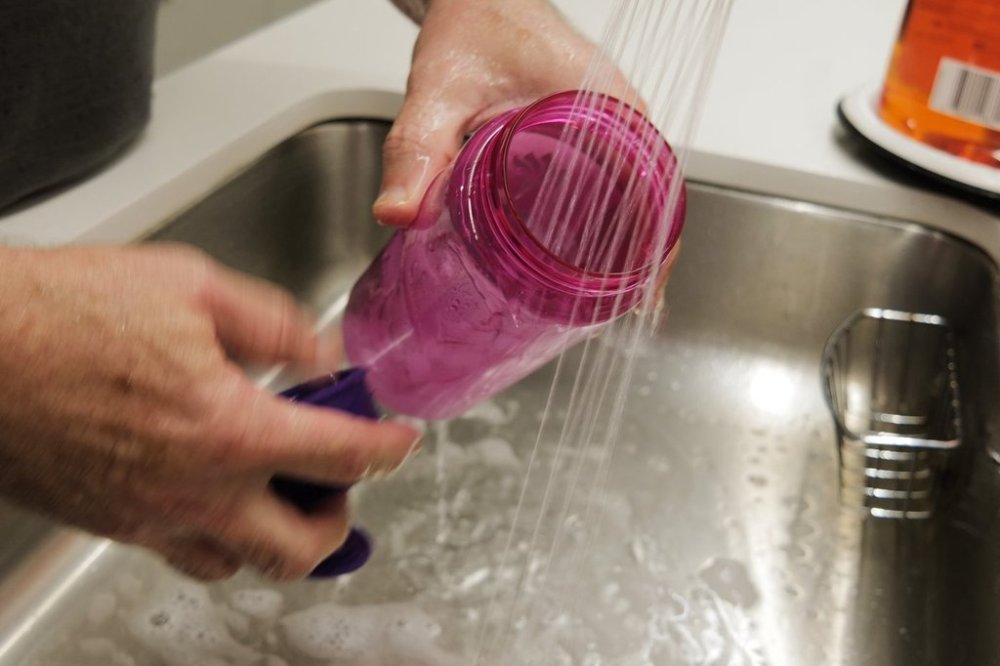Yes, you do need to clean your water bottle. Here’s why and how
Advertisement
Read this article for free:
or
Already have an account? Log in here »
To continue reading, please subscribe:
Monthly Digital Subscription
$0 for the first 4 weeks*
- Enjoy unlimited reading on winnipegfreepress.com
- Read the E-Edition, our digital replica newspaper
- Access News Break, our award-winning app
- Play interactive puzzles
*No charge for 4 weeks then price increases to the regular rate of $19.00 plus GST every four weeks. Offer available to new and qualified returning subscribers only. Cancel any time.
Monthly Digital Subscription
$4.75/week*
- Enjoy unlimited reading on winnipegfreepress.com
- Read the E-Edition, our digital replica newspaper
- Access News Break, our award-winning app
- Play interactive puzzles
*Billed as $19 plus GST every four weeks. Cancel any time.
To continue reading, please subscribe:
Add Free Press access to your Brandon Sun subscription for only an additional
$1 for the first 4 weeks*
*Your next subscription payment will increase by $1.00 and you will be charged $16.99 plus GST for four weeks. After four weeks, your payment will increase to $23.99 plus GST every four weeks.
Read unlimited articles for free today:
or
Already have an account? Log in here »
NEW YORK (AP) — You keep your trusty reusable bottle filled with only clear, delicious water. Do you still need to wash it?
Experts say reusable bottles get grubby no matter what liquid they’re filled with, and it’s important to clean them regularly.
Water bottles pick up germs from our mouths when we take a sip, and from our hands when we touch the straw or lid. They’re covered in tiny, tough-to-reach nooks and crannies which can become breeding grounds for mold, bacteria and other microbes if left un-scrubbed.

“It seems like something mundane, but it is extremely important,” said nurse practitioner Michele Knepper, who works at the University of Pittsburgh Medical Center.
Unclean water bottles can cause stomach aches and itchy throats and even exacerbate allergies and asthma.
Experts disagree on when and how you should wash them, but they’re all in agreement on one thing: Give your water bottle a tender loving clean, because something is better than nothing at all.
“Is it that big of a deal? No. But it’s also not difficult to just wash your water bottle,” said Dr. Mike Ren, a family medicine physician at Baylor College of Medicine.
Some tips for a squeaky clean water bottle
Experts say the gunk doesn’t care what your water bottle is made of. Reusable metal, plastic and glass bottles all grow germy, but plastic bottles are more likely to get scratches or dings on the inside where microbial life can cozy up.
The best cleaning routine is a simple one: Use a sponge or bottle brush to scrub inside and out with warm, soapy water, rinse it out and let it dry so it’s ready for the next refill. A narrow or pipe cleaner-shaped tool can be useful to get into straws and tight crevices.
For a deeper wash, scientists recommend popping the bottle in the dishwasher if it’s safe to do so, or dissolving a denture or retainer-cleaning tablet in the bottle overnight. Scrubbing with a warm water solution of vinegar or baking soda works too.
Many experts recommend doing a simple, soapy water clean every day and a deeper clean once a week. If daily cleaning feels a little extra, Ren said to try to get to it at least every other week or so while maintaining other good habits like rinsing the mouthpiece over the sink during each refill.
But if you fill your reusable bottle with other beverages like protein shakes or exercise drinks, it really is important to clean every day. Sugary drinks leave a residue that bacteria love to snack on.
Do you need to dump the water in your bottle every day?
Is it okay to leave water in a reusable bottle overnight? Experts disagree.
Some say to dump the dregs out every refill, while others recommend emptying every few hours. Ren says it’s likely okay to leave some inside overnight, but to empty old water at least every few days.
“Guidelines are guidelines,” Ren said. “Everyone’s going to do it a little bit differently.”
If there’s visible mold on the bottle or the liquid inside has a weird smell, don’t drink it. Avoid refilling disposable plastic water bottles since chemicals can leach into the water, and they’re even more full of cracks and crevices that can harbor germs.
Water bottle cleaning routines may not all look the same — but it’s important to keep up the habit, said Ivy Sun, a hospitality expert at Georgia Southern University who has studied water bottle contamination. She washes her and her kids’ bottles with soapy water every day.
“This is just a very small step that we do, but it can largely help with our health,” Sun said.
—-
The Associated Press Health and Science Department receives support from the Howard Hughes Medical Institute’s Department of Science Education and the Robert Wood Johnson Foundation. The AP is solely responsible for all content.

